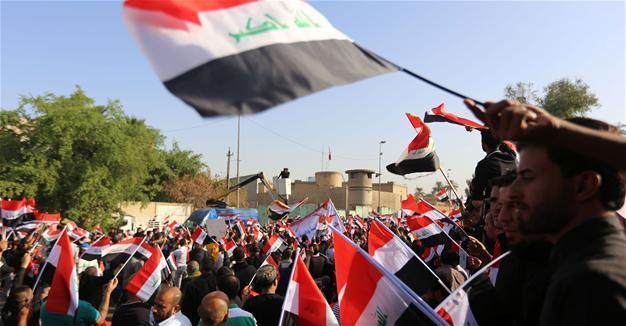Turkey and Iraq negotiate agreement on Turkish troops in Bashiqa
Sevil Erkuş - ANKARA

Turkey and Iraq are negotiating on a five- or six-point agreement to clarify the current status and future of Turkish troops at the Bashiqa military camp close to Mosul.
A visiting Turkish delegation presented a draft to Iraqi officials in Baghdad on Oct. 17, and the parties edited some of the articles following proposals by the Iraqi side, Turkish officials said. As Iraq works on the draft agreement, Ankara and Baghdad will continue talks in the near future, they said.
The status of the Bashiqa camp, the involvement of Shiite militias in Mosul offensive and the presence of outlawed Kurdistan Workers’ Party (PKK) elements in the Sinjar region were the three main issues discussed during the delegation’s visit.
Ankara and Baghdad have reached a “general consensus” over the issues, according to Turkish officials, who stressed that Turkey preferred a written agreement which would also have an effect on non-state actors in Iraq.
As a second option, the parties could implement the consensus under a modus vivendi without a written accord, according to developments in Iraq. The Turkish side is worried about Tehran’s possible interference in the talks between Baghdad and Ankara.
Turkey proposes use of Turkish troops’ assets in BashiqaOn the issue of Turkish forces in northern Iraq, the agreement will identify the current status and future of the troops, with Turkey insisting that the soldiers remain stationed at Bashiqa until the end of the Mosul offensive. A formula that would bring the status of Bashiqa camp under the mandate of the coalition forces has long been proposed by Turkey.
Ankara also proposed that Iraq use Turkish troops’ assets at the Bashiqa camp, such as its artillery capacity, as part of the Mosul offensive against the Islamic State of Iraq and the Levant (ISIL), yet Baghdad expressed concerns about the involvement of Turkish soldiers.
Turkish officials have underlined that the participation of the Ninova fighters trained by Turkish soldiers in the Mosul offensive was vital for Ankara, adding that Baghdad accepted the request.
Resume of trilateral mechanism against PKKAfter the Kurdistan Democratic Party (PDK) retreated from the Sinjar region in the face of an onslaught by ISIL, the PKK moved into fill the vacuum and rescue fleeing members of the Yazidi community before subsequently demanding to become part of the Mosul offensive. Turkey has urged both the U.S. and Iraq to hinder the participation of PKK elements in the offensive, officials say, adding that their expectation was met by Iraqi administration. Baghdad stopped financial aid to Kurdish militias in Sinjar two months ago following suggestions by Washington.
During the talks in Baghdad, Iraq proposed to their Turkish interlocutors to resume a trilateral committee between Turkey, Iraq and the U.S. in order to discuss the PKK presence in the Sinjar region after the Mosul offensive is completed.
No Shiite militia in Mosul city center and Tel AfarFearing the possibility of Sunni-Shiite sectarian clashes, Turkey has objected to the prospect of al-Hashd al-Shaabi, Shiite paramilitary forces, entering the city center of Mosul and Tel Afar in the U.S.-led offensive against ISIL.
In talks with the Turkish delegation, Baghdad assured Ankara that the militias would not be involved in an offensive into Mosul city center. But Ankara is still worried the forces might enter the largely Turkmen town of Tel Afar in contravention of Baghdad’s instructions. U.S.-led coalition forces are planning another offensive in Tel Afar against ISIL fighters after the Mosul operation.
The next round of talks between Ankara and Baghdad will be held upon a reply from the Iraqi side. A delegation from Iraq to Turkey or vice versa could make the visit or Turkish embassy officials in Baghdad could conduct the upcoming talks.
Ankara worried over protests by al-Sadr GroupSupporters of Shiite leader Muqtada al-Sadr have been holding protests in front of the Turkish embassy since Oct. 17. Ankara is worried about the deterioration of ties with the Shiite group as Turkey has previously had good relations with al-Sadr, Iraq’s most powerful Shiite cleric, whose policies are perceived as “balanced” by Ankara.
Al-Sadr has identified the Turkish presence in Mosul as an “occupation of Iraq” and called his supporters to make their voices heard without assaulting the embassy.
 Turkey and Iraq are negotiating on a five- or six-point agreement to clarify the current status and future of Turkish troops at the Bashiqa military camp close to Mosul.
Turkey and Iraq are negotiating on a five- or six-point agreement to clarify the current status and future of Turkish troops at the Bashiqa military camp close to Mosul.